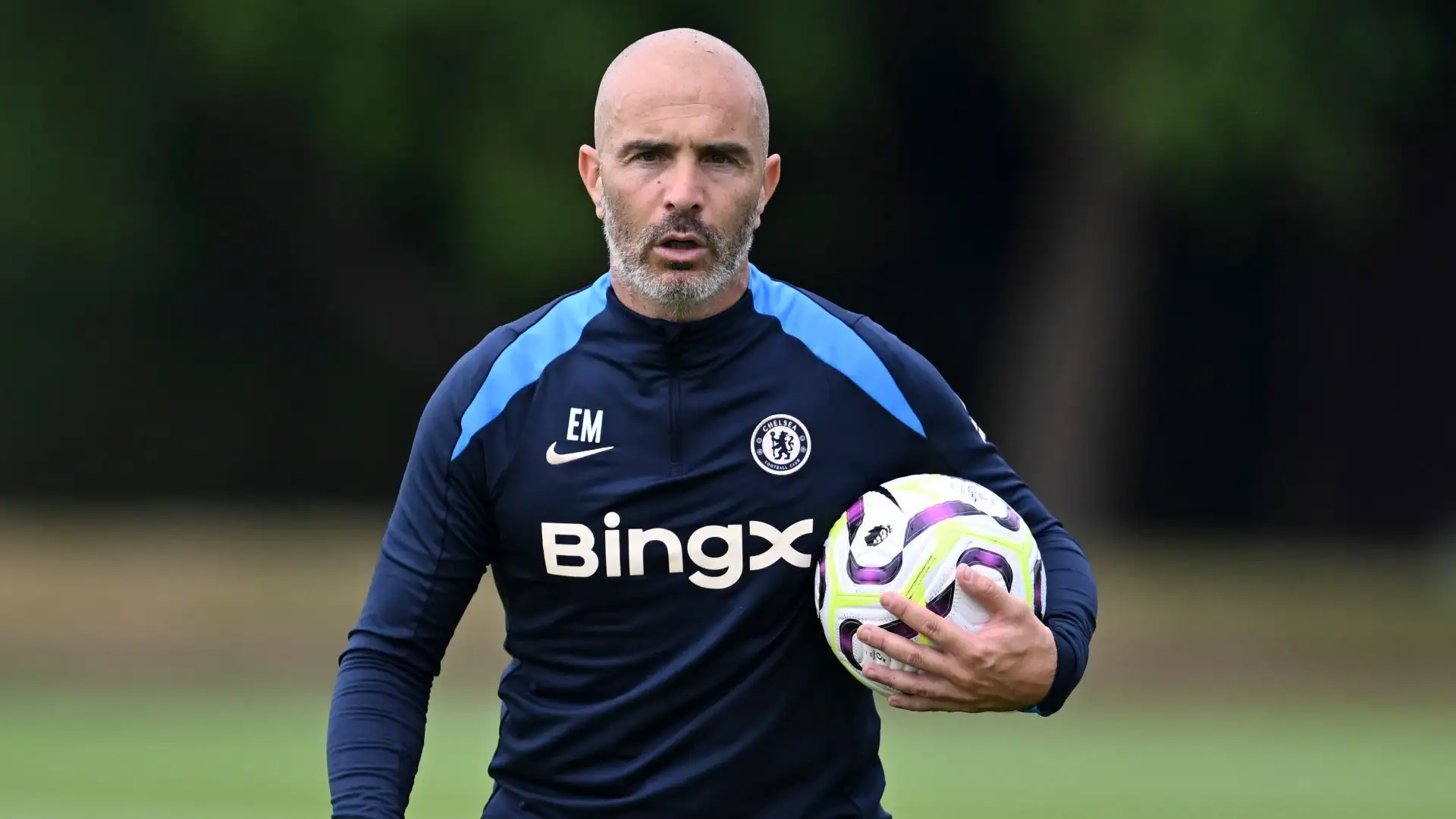As Chelsea’s pre-season draws to a close, the team’s defensive struggles have been thrust into the limelight, raising concerns about their preparedness for the Premier League opener against Manchester City. With a pre-season record of three defeats and only one win from five fixtures, the team’s readiness has come under intense scrutiny. Recent remarks by Enzo Maresca regarding Chelsea’s defensive issues have fueled speculation that he may be subtly criticizing the previous tactical approach implemented by Mauricio Pochettino.
Maresca, who is currently serving as Chelsea’s assistant manager, addressed the media following Chelsea’s 2-1 loss to Real Madrid. His comments highlighted ongoing defensive problems and suggested a significant tactical shift. “It’s a problem we are trying to solve from pre-season since day one,” Maresca said. “One of my first meetings with the squad was about the amount of goals we conceded last year with the defensive line very high. It’s something we are trying to work on.” His remarks point to a focus on revising the defensive line, which was notably high under Pochettino’s regime.
The use of the term “habit” in Maresca’s comments has sparked debate. In football terminology, a “habit” can imply a routine or established practice that has become second nature. Maresca’s reference to the high defensive line as a “habit” could be interpreted as a subtle critique of Pochettino’s tactical approach. Known for his aggressive pressing and high defensive line, Pochettino’s tactics have been a defining feature of his coaching philosophy at Tottenham Hotspur and Paris Saint-Germain. By describing the high defensive line as a “habit,” Maresca suggests that this approach may have become entrenched and possibly needs reassessment.
Maresca’s plan to lower the defensive line by five meters indicates a significant tactical adjustment. Although he did not name Pochettino directly, the implication is clear: the high defensive line, a hallmark of Pochettino’s tactics, is being reevaluated. This change aims to address vulnerabilities that have been exposed during pre-season games, reflecting an effort to enhance defensive stability. The decision to lower the line suggests a move towards a more balanced approach, aiming to mitigate the risks associated with a high defensive stance.
The contrast between Chelsea’s attacking prowess and defensive frailties has been a recurring theme throughout the pre-season. While the team has demonstrated its offensive capabilities, generating chances and creating opportunities, the defensive weaknesses have overshadowed these positive aspects. Maresca acknowledged this disparity, stating, “Offensively, we are there—the patterns are there. We created chances.” This statement highlights the team’s progress in attacking situations but also underscores the pressing need for improvements in defense.
The defensive issues have been particularly evident in Chelsea’s recent matches, where they have conceded goals at a worrying rate. The high defensive line, while potentially effective in pressing opponents and winning the ball high up the pitch, has left the team vulnerable to counter-attacks and quick transitions. Maresca’s focus on adjusting this aspect of the team’s play reflects a strategic shift aimed at addressing these vulnerabilities.
As Chelsea prepares for their Premier League debut against Manchester City, the implementation of these defensive changes will be closely watched. The upcoming fixture against Inter Milan will serve as a crucial test for the new defensive strategy and provide insights into how well the team is adapting to the adjustments. The ability to effectively address defensive issues will be key to Chelsea’s success in the forthcoming season.
In conclusion, while Enzo Maresca’s comments do not explicitly criticize Mauricio Pochettino, the reference to the high defensive line as a “habit” and the proposed adjustments suggest an indirect critique of Pochettino’s tactical approach. The shift towards a lower defensive line indicates a strategic recalibration aimed at improving defensive solidity and addressing vulnerabilities that were evident during the pre-season. Chelsea’s success in the Premier League will depend on how effectively these changes are implemented and whether they can resolve the defensive issues that have plagued their pre-season campaign.
ALSO READ:Firat Highlights How Akumu’s Return Will Boost Harambee Stars’ Performance”


